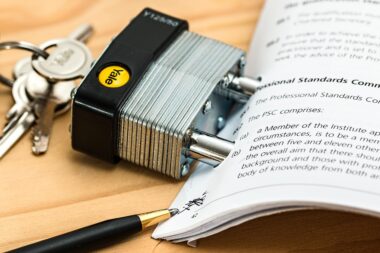The Influence of Legal Tech on Mergers and Acquisitions
The modern legal landscape has undergone significant transformations due to technological advancements. Legal technology, commonly referred to as Legal Tech, plays a crucial role in optimizing various processes within the legal domain, particularly in Mergers and Acquisitions (M&A). By improving efficiency, reducing costs, and promoting better compliance, Legal Tech has become indispensable for legal professionals engaged in these complex transactions. Various tools, including contract management systems, automated due diligence software, and blockchain technology, have emerged to tackle longstanding challenges associated with M&A deals. For instance, managing vast amounts of data from multiple sources can overwhelm traditional systems. However, Legal Tech offers automated solutions allowing professionals to easily organize, analyze, and access relevant information. This streamlining not only saves time but also enhances decision-making capabilities in negotiations, thereby benefiting all parties involved. Organizations increasingly realize that investing in Legal Tech is essential to maintain competitiveness and ensure successful M&A outcomes. Through embracing these technological innovations, legal teams can work more collaboratively and effectively. Thus, the integration of Legal Tech has revolutionized the approach to M&A in the contemporary business environment.
Understanding the Role of Document Automation
Document automation systemically enhances the efficiency of drafting and managing legal documents in M&A transactions. By leveraging templates and data integration, legal professionals can generate complex agreements with minimal manual effort. This not only saves time but also reduces errors commonly found in traditional processes. In the context of mergers and acquisitions, the accuracy of legal documents is paramount. Automated systems greatly diminish the risk of inconsistencies and missed clauses, which can lead to significant issues down the line. Consequently, many firms have adopted these solutions to ensure precision in drafting key agreements, such as purchase agreements and merger contracts. The ability to customize automation tools to specific legal needs further reinforces the effectiveness of document automation in M&A. This adaptability allows lawyers to integrate industry-specific language and regulations tailored to unique contexts. As a result, clients can expect faster turnaround times and improved reliability when executing documents. Furthermore, document automation enables collaboration among teams by providing a centralized platform for all stakeholders to access and review necessary files. This collaborative environment fosters transparency and accountability, making M&A transactions smoother overall.
The due diligence phase of M&A transactions poses numerous challenges, often requiring extensive investigation and analysis. Legal Tech has introduced advanced tools that simplify and expedite this critical process. Platforms utilizing machine learning and artificial intelligence can analyze vast datasets rapidly, identifying potential risks and liabilities often hidden in complex documents. This revolutionary approach allows teams to focus their attention on strategically important findings rather than sifting through pages of paperwork. Furthermore, these tools help ensure compliance with regulatory requirements by thoroughly examining relevant documentation. By employing these technologies, legal teams can reduce the time spent on due diligence significantly, leading to expedited negotiations. Moreover, the ability to assess potential risks more effectively enables informed decision-making, increasing the likelihood of successful outcomes for all involved parties. Investing in Legal Tech for due diligence ultimately leads to cost savings and greater confidence in the M&A process. Legal professionals are now able to make insightful recommendations backed by data-driven analyses. As such, the integration of these technologies has become a game-changer in M&A, empowering legal teams to enhance their practice and deliver exceptional value to clients.
Embracing E-Discovery in M&A
E-discovery solutions play a pivotal role in managing the complexities of M&A transactions, especially in regards to information retrieval and legal obligations. In today’s digital era, a substantial amount of data is stored electronically. Consequently, traditional approaches to document collection and review are insufficient. E-discovery tools facilitate the identification, collection, and organization of electronic evidence swiftly and efficiently. By utilizing advanced search functionalities, legal teams can unearth relevant information that may influence deal structures or reveal hidden liabilities. Moreover, e-discovery technologies significantly reduce the time and resources associated with document review. This efficiency is crucial in fast-paced M&A environments where every moment matters. Legal professionals also benefit from enhanced reliability with e-discovery, as these systems reduce human error potential during the review process. Implementing e-discovery can assist in fulfilling compliance obligations quickly and thoroughly, which is paramount in maintaining legal and regulatory standards. More importantly, organized and accessible information during M&A negotiations can empower teams to present better arguments and insights to clients. As M&A deals become more intricate and time-sensitive, e-discovery remains an essential component to streamline workflows within legal teams.
Blockchain technology is making waves across various industries, including the legal sector, particularly in M&A transactions. The application of blockchain can foster increased transparency and security in contractual agreements. By leveraging smart contracts, parties can automate certain transaction processes, drastically reducing time and the likelihood of disputes arising from ambiguous clauses. These blockchain-enabled contracts execute automatically when the predetermined conditions are satisfied, ensuring compliance and reliability for all involved. Furthermore, the immutable nature of blockchain allows for secure record-keeping, which is crucial in M&A activities where vast amounts of sensitive data may be exchanged. This ability to track modifications and validate data authenticity elevates trust among stakeholders, enhancing cooperation throughout the transactional process. Legal professionals leveraging blockchain technology can provide clients with innovative solutions that address traditional challenges. Importantly, utilizing blockchain mitigates risks associated with fraud or misrepresentations, ultimately promoting fairer and smoother M&A transactions. As businesses continue to explore the integration of blockchain, its influence on M&A processes cannot be understated. Firms eager to remain competitive must recognize the potential impact of this technology on future deals and strategies.
The Importance of Compliance and Risk Management
Legal Tech ensures compliance with diverse regulations and minimizes potential risks during M&A transactions. As companies undergo mergers or acquisitions, they often encounter various legal and regulatory challenges that require thorough scrutiny. Legal Tech provides tools enhancing risk management strategies by allowing legal teams to monitor compliance efficiently. Through implementing compliance tracking systems, organizations can safeguard against potential legal pitfalls, ensuring adherence to local, national, and international regulations. These tools enable instantaneous updates regarding changes in legislation, which could affect ongoing and future transactions. Furthermore, risk assessment tools assist professionals in identifying potential threats early in the M&A process, allowing teams to make informed decisions. With comprehensive insights into existing risks, organizations can adopt proactive measures to address concerns before they escalate. Legal Tech solutions reinforce an organization’s commitment to regulatory responsibilities, demonstrating due diligence to stakeholders and investors. Moreover, integrating technology into compliance processes can improve transparency and accountability, fostering trust among partners involved in mergers and acquisitions. As legal environments become increasingly complex, utilizing Legal Tech for compliance management becomes essential for successful and sustainable M&A outcomes in today’s business landscape.
In conclusion, the influence of Legal Tech on Mergers and Acquisitions can no longer be ignored in the ever-evolving business landscape. The integration of technology into legal practices transforms processes and improves overall efficiency, accuracy, and compliance. Legal Tech tools have empowered professionals to navigate the complexities associated with M&A transactions seamlessly. Rising innovations such as document automation, e-discovery, and blockchain technology have revolutionized traditional approaches. By enhancing due diligence, risk management, and compliance practices, legal teams can provide better support to their clients and achieve successful outcomes. As businesses increasingly seek competitive advantages in their M&A activities, adopting these technologies becomes crucial. Organizations must be open to leveraging legal technologies that suit their specific needs, ensuring streamlined operations and fostering collaboration. Keeping abreast of advancements in legal tech will ultimately benefit not only individual firms but also the wider industry. Looking ahead, it is evident that Legal Tech’s impact on M&A will continue to grow, shaping how transactions are conducted. Companies proactive in integrating these technologies will undoubtedly find themselves at a significant advantage, enjoying the benefits that come with innovation in legal practice.
The future of Mergers and Acquisitions appears increasingly influenced by the evolving landscape of Legal Tech. As advancements continue to reshape the business environment, embracing technology will be crucial for success. Legal professionals who adapt to these changes will significantly enhance their capabilities and strategic approaches in the M&A realm. Staying informed about the latest Legal Tech developments will empower firms to adopt best practices, ensuring they remain competitive in a rapidly changing marketplace. Furthermore, organizations that invest in technology will better navigate the challenges associated with transaction processes, leading to improved overall performance. Anticipating future trends in Legal Tech will facilitate smoother transactions, reduced costs, and enhanced organizational agility. The collaboration between legal practitioners and technology will foster innovative solutions to address emerging challenges. Therefore, as M&A processes evolve, so too must the technologies that support them. Continuous professional development and investment in technology are integral for legal teams embarking on M&A initiatives. By leveraging advancements in Legal Tech, firms can unlock new avenues for growth and better address client needs, ultimately paving the way for a successful future in Mergers and Acquisitions.





